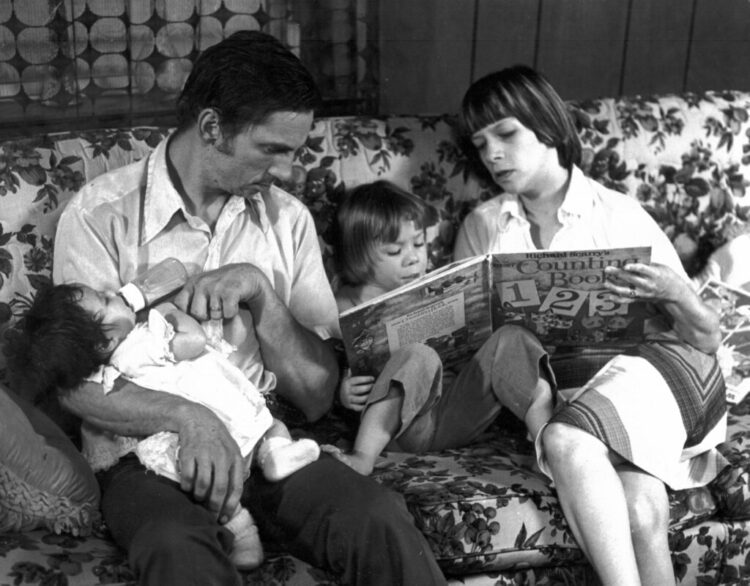
Back in the day, divorce wasn’t something people talked about openly—especially if you were raised in a time when “staying together” was seen as a badge of honor. For many Boomer couples, ending a marriage felt like a failure, not freedom. Cultural pressure, financial fears, and personal guilt kept many together, even when the love had faded. Here are 15 honest reasons why so many Boomer couples were afraid to call it quits.
Divorce Was Seen as a Shameful Secret

In the Boomer era, getting divorced wasn’t just a personal decision—it came with a heavy dose of judgment. People worried about what the neighbors would say, how church groups would react, or what kind of example they’d set for their kids. Staying married, even in an unhappy home, was seen as the more respectable path, and that fear of shame kept many couples from walking away.
Financial Survival Seemed Impossible Alone

For many Boomer women, leaving meant more than heartbreak—it meant facing the world without financial stability. A lot of wives didn’t work outside the home or earned far less than their husbands, and the idea of suddenly covering rent, bills, and groceries on their own was overwhelming. Even for men, the thought of splitting assets or paying support made divorce feel like too big of a financial hit.
They Didn’t Want to Hurt the Kids

Boomers were raised to believe that a broken home was the worst thing that could happen to a child. Even when the marriage was cold or tense, many stayed together because they didn’t want their kids bouncing between houses or growing up without both parents under one roof. It didn’t always lead to the happiest homes, but they thought it was the most stable thing to do.
Religion Played a Big Role

Faith was a strong guiding force for many Boomer families, and in many religious communities, divorce just wasn’t an option. It was frowned upon—or, in some cases, flat-out forbidden. Couples felt bound not just by vows but by the fear of being judged by their church, priest, or congregation. Staying married was seen as a spiritual duty, no matter how strained the relationship became.
Therapy Wasn’t Talked About

Back then, couples didn’t sit down with therapists to talk about feelings or resolve deep-rooted issues. Admitting you needed counseling was seen as weak or embarrassing, so people didn’t seek the help that might have made leaving, or staying, healthier. Many just kept pushing through problems silently, thinking that pretending everything was fine was better than airing their struggles.
Divorce Was Rare in Their Circles

In a time when everyone around you stayed married—whether happily or not—it was hard to be the first to step out of line. If none of your friends, family, or neighbors were divorced, it made you feel isolated or like the odd one out. Boomer couples often feared being pitied, whispered about, or excluded from the familiar social circles they had built for years.
They Thought They Could Just Tough It Out

Boomers were raised with a mindset of grit and endurance, and that bled into their marriages, too. Even when things got hard, they often believed that sticking it out was the only option. Whether they were miserable or just disconnected, they told themselves marriage was meant to be hard—and that leaving would mean giving up too easily on something they’d promised to hold onto.
Divorce Meant Starting Over—And That Was Terrifying

When you’ve been with someone for 10, 20, or even 30 years, the idea of starting over can be more frightening than staying unhappy. Many Boomer couples couldn’t imagine dating again, finding new routines, or rebuilding their lives alone. The fear of the unknown was enough to keep them stuck in familiar but unhappy patterns simply because it felt safer than taking a leap into something new.
They Were Worried About Being Alone

Loneliness can be just as powerful as love when it comes to keeping couples together. Many Boomers stayed in unhappy marriages because they feared what life would look like without someone beside them. Even if the relationship lacked joy or connection, the thought of sleeping alone, eating alone, or aging alone was enough to make people hold on to what little companionship they had left.
They Grew Up Watching Their Parents Stay Together

Boomers often followed the example set by their own parents, many of whom never considered divorce, even during tough times. That old-school sense of duty and sacrifice was passed down, making it feel like leaving a marriage was a betrayal of the values they were raised with. They saw marriage as something you honored no matter what—not something you walked away from when things got hard.
Legal Systems Weren’t as Fair—Especially to Women

Divorce laws weren’t always designed with fairness in mind. For many women in earlier decades, leaving meant losing custody, property, or any say in financial matters. Without clear protections or support systems in place, staying felt like the only way to keep some control. Fear of what would happen in court, especially with children involved, kept many from taking the legal risk of divorce.
There Wasn’t As Much Support After Divorce

In earlier generations, divorced people didn’t have the same level of community support or acceptance that exists today. There weren’t many meetups for divorced parents or mental health groups to help rebuild your life. You were often left to figure it out on your own, and the isolation that came with it scared a lot of people into staying put. It was survival over happiness.
They Thought Love Was Supposed to Fade

Boomers didn’t always expect fireworks forever—they were taught that love settles into a routine, and that’s just how marriage goes. So when the passion fizzled or the friendship faded, they often assumed it was normal and not a reason to leave. They believed marriage was about duty, raising kids, and building a life—not about constant happiness or emotional fulfillment, which made divorce feel unnecessary or selfish.
Guilt Was a Powerful Emotion

Many Boomers didn’t leave unhappy marriages because of guilt—over the vows they made, the kids they raised, or the time they had invested. They felt guilty about breaking up a family or about the sacrifices their partner had made. That kind of emotional weight made it hard to walk away, even when their heart told them it was time. Guilt made staying feel like the “right” thing to do.
They Thought They Were Too Old to Change Things

By the time many Boomers felt fed up or worn down by their marriage, they believed it was too late to do anything about it. They’d already built a whole life together—homes, habits, shared memories—and change felt like more trouble than it was worth. So, instead of starting over in their 50s or 60s, they simply accepted the marriage for what it was and settled into it, even if they weren’t truly happy.

